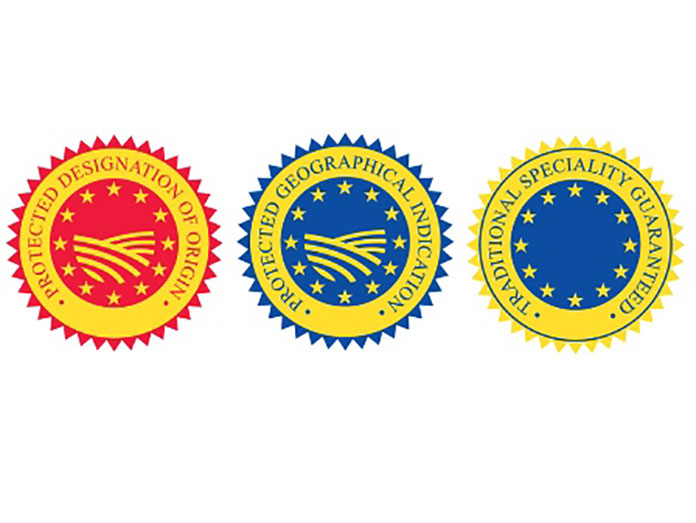Agri-food and drink products whose names are protected by the European Union as “Geographical Indications” (GIs) represent a sales value of €74.76 billion, according to a recently published study by the European Commission. Over one fifth of this amount results from exports outside the European Union.
The study was based on all 3,207 product names protected across the 28 EU Member States at the end of 2017 (by the end of March 2020, the total number of protected names increased to 3,322).
According to the study, there is a clear economic benefit for producers in terms of marketing and increase of sales thanks to high quality and reputation of these products, and willingness of consumers to pay to get the authentic product. In fact, the study found that the sales value of a product with a protected name is on average double that for similar products without a certification.
What are geographical indications?
The EU, in order to defend the diversity of its many high-quality products, has established European quality systems to identify products with a specific quality. The most notable are:
- PDO (Protected Designation of Origin): Gives status to a food product which is produced entirely within a defined geographical area using recognized skills and ingredients from the region, and which is linked to its geographical origin. PDOs include many cheeses, meat products, olive oils, fruits and vegetables, and, of course, many wines.
- PGI (Protected Geographical Indication): Denotes a food linked by its quality and reputation to a region in which at least one stage of production took place. PGIs include beers, meat, and also bakery products and fish.
- Traditional speciality guaranteed (TSG): It highlights the traditional aspects such as traditional production method or traditional composition, without being linked to a specific geographical area.
The EU has concluded more than 30 international agreements, which allow the recognition of many EU Geographical Indications outside the EU and the recognition of non-EU Geographical Indications in the EU. Geographical Indications play an increasingly important role in trade negotiations between the EU and other countries. The Commission also dedicates around €50 million every year to promote quality products not only in the EU but also around the world.
While the denomination of origin classification has many retractors—there are people who believe that origin plays only a minor role in either the taste or quality of a product—true gourmets, as well as most consumers will agree that it is difficult for a particular food or drink to be replicated almost anywhere.
Main findings of the study
Significant sales value: Geographical indications and traditional specialities guaranteed all together accounted for an estimated sales value of €77.15 billion in 2017, 7% of the total sales value of the European food and drink sector estimated at €1,101 billion in 2017. Wines represented more than half of this value (€39.4 billion), agricultural products and foodstuffs 35% (€27.34 billion), and spirit drinks 13% (€10.35 billion). Out of the 3,207 product names that were registered in 2017 (both GI and TSG), 49% were wines, 43% agri-food products and 8% spirits drinks. The sales value of agricultural products and foodstuffs labelled as TSG are worth €2.3 billion.
Higher sales premium for protected products: The sales value of the products covered by the study was on average double than the sales value for similar products without a certification. The value premium rate stood at 2.85 for wines, 2.52 for spirits and 1.5 for agricultural products and foodstuffs.
A truly European policy: Each EU country produces products whose names are protected at EU level and serve as flagships for the traditional culinary heritage of regions and as economic drivers for the national agri-food sector.
Exports of geographical indications: Geographical indications represent 15.5% of the total EU agri-food exports. Wines remained the most important product both in terms of total sales value (51%) and extra-EU trade (50%). The U.S., China and Singapore are the first destinations for EU GI products, accounting for half of the export value of GI products.
To ensure that the EU quality policy continues to deliver at its best, an online public consultation was launched from 4 November 2019 to 3 February 2020 to gather feedback on the policy from stakeholders. Among the key findings, a majority of respondents agreed that EU quality schemes benefit producers and consumers.
Discover more about Greek PDO products & PGI products.



















